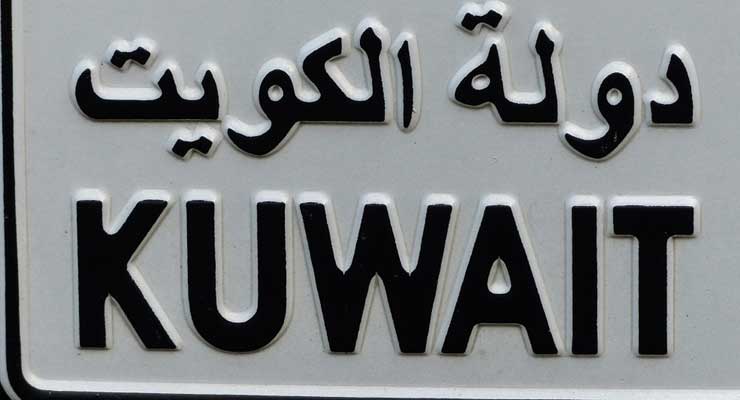
From the Gulf Centre for Human Rights:
According to reports received by the Gulf Centre for Human Rights (GCHR), the General Department of Criminal Investigation, and the State Security Bureau have arrested a number of activists defending the rights of the Bedoon community in Kuwait.
On 12 July 2019, at about 7:00 pm, a number of activists organised a peaceful sit-in at Freedom Square in the Taima area of Kuwait City, where Kuwaiti national flags were raised. The demonstrators demanded recognition for the civil and human rights of the Bedoon community.
The sit-in came after Ayed Hamad Moudath, a 20-year-old Bedoon, committed suicide on 07 July 2019 due to his frustration with not having any identification papers that he could use to study, work and obtain public services.
Before the sit-in began, Mazda and GMC vehicles belonging to the Criminal Investigation and the State Security started an operation to cordon the homes of leaders and organisers of the previous sit-ins that demanded the Bedoon community rights.
The operation resulted in the arrest of prominent human rights defender Abdulhakim Al-Fadhli from his home and the confiscation of all electronic equipment belonging to him and his family. Local sources confirmed that Al-Fadhli was severely beaten from the moment of his arrest until he was held in custody at the Taima police station.
On the same evening, State Security forces arrested the following activists: Ahmed Al-Onan, Awad Al-Onan, Mutaib Al-Onan, Abdullah Al-Fadhli, Yousef Al-Osmi, ِAhmed Al-Anzi, Yousif Al-Bashig, Nawaf Al-Bader, and Alaa Al-Saadoun. Al-Saadoun was released after midnight, and she reported that the security forces grabbed her cell phone forcefully and hit her.
Some unconfirmed reports suggested that the arrested activists will be referred to the Public Prosecution and charged for organising illegal demonstrations and breaching public security.
Al-Fadhli is a well-known human rights defender who spent many years defending the rights of the Bedoon community. He has been arrested and imprisoned for his peaceful activities several times in the past and has also monitored human rights violations in Kuwait. The rest of the detainees are peaceful activists who participated in previous sit-ins demanding the rights of the Bedoon community in Kuwait.
GCHR is deeply concerned about the targeting of human rights defenders and peaceful protestors in Kuwait, including Abdulhakim Al-Fadhli and his fellow detainees, as part of a continuing pattern adopted by authorities aimed at putting serious limitations on civic space, in order to impede human rights defenders and activists from carrying out their legitimate and peaceful activities.
GCHR urges the Government of Kuwait to:
- Immediately and unconditionally release all detained human rights defenders and other activists including Abdulhakim Al-Fadhli, and drop all charges against them;
- Declare full recognition of the civil and human rights of the Bedoon community in Kuwait; and
- Ensure, in all circumstances, that all human rights defenders in Kuwait are able to carry out their legitimate human rights work without fear of punishment and free of all restrictions, including judicial harassment, and that people are free to freely carry out peaceful protests.
The GCHR respectfully reminds the authorities in Kuwait that the United Nations Declaration on the Right and Responsibility of Individuals, Groups and Organs of Society to Promote and Protect Universally Recognised Human Rights and Fundamental Freedoms, adopted by consensus by the UN General Assembly on 09 December 1998, recognises the legitimacy of the activities of human rights defenders, their right to freedom of association and to carry out their activities without fear of reprisals. We would like to draw your attention in particular to article 5 (c), which states that:
For the purpose of promoting and protecting human rights and fundamental freedoms, everyone has the right, individually and in association with others, at the national and international levels:
C) Liaise with non-governmental organizations or intergovernmental organizations.
And article 6 (c), which states that everyone has the right, individually and in association with others, to:
(C) To study, discuss, form and hold opinions on the observance, both in law and in practice, of all human rights and fundamental freedoms and, through these and other appropriate means, to draw public attention to those matters.
Leave a Reply